Feb. 1, 2018:
Investigator Spotlight:
Attaya Suvannasankha, MD, Indiana University Melvin and Bren Simon Cancer Center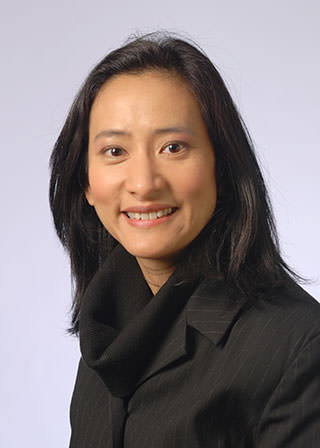
School of Medicine: Chulalongkorn University, Bangkok, Thailand; Residency: Einstein Medical Center Philadelphia; Fellowship: Roswell Park Cancer Institute, Buffalo, NY
Research interests: Multiple myeloma is a rare and incurable blood cancer, but not all myeloma is the same. While the current treatments may work well initially, myeloma keeps recurring and eventually patients die from drug resistant myeloma and treatment side effects. Much work is needed to understand why myeloma cancer cells respond differently to common treatments. Currently, there is not a good way to predetermine the response of an individual’s myeloma to chemotherapy. Current treatments are therefore rather trial and error.
I believe that an individualized treatment for each patient will be more effective, less toxic, less expensive and can lead to a cure. In the lab, I am establishing a new way to grow and test each patient’s myeloma cells in mouse bones to select the right chemotherapy for them. In the clinic, I lead clinical trials that explore new drugs or drug combinations in myeloma. I am particularly interested in finding how to best use these medications in frail elderly patients in order to balance cancer control and quality of life issues.
Being a part of the Big Ten Cancer Research Consortium myeloma team allows me to work with the best and the brightest among the Big Ten Institutions to conduct high-impact, hypothesis-driven, highly translational, clinical trials in myeloma- a rare and incurable disease in need of novel treatments.
Little-known facts about Dr. Suvannasankha:
- When I first moved to the US for residency training, I was so nervous speaking English that I only ate at fast food restaurants so I could order food by numbers without needing to speak in sentences. Thanks to all the Philadelphians for letting me practice English on them.
- I was not at all athletic as a child. I’ve picked up running as a hobby and have completed a few marathons. Each marathon mile is dedicate to a patient, friend or family who has inspired me.
- I have a poor memory for people’s names but I can remember people’s stories.
Read More
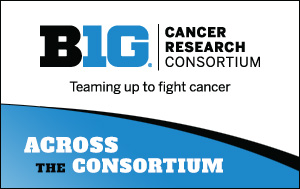
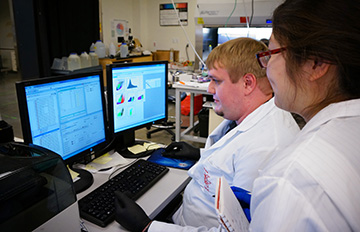
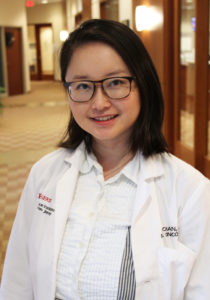 Research interests: I am interested in discovering and developing new therapies for the treatment of breast and gynecological malignancies. I have witnessed various immunotherapies shrink tumors within weeks and help women live longer with their cancer with minimal side effects. I have also faced the frustration of lack of response and rare but life threatening side effects of immunotherapy. I hope that my research will contribute to how to identify responders, as well as how to improve and potentiate durable response. Our immune system is extremely intricate and sophisticated, we are still learning so much about its potentials. Our collaborations with my colleagues at Rutgers, the Big Ten, and pharmaceutical companies are driving progress in the field. The Big Ten breast cancer research consortium has developed innovative trials to explore the potential benefits of a variety of targeted therapies in triple negative, hormone receptor positive, and HER2 positive breast cancers.
Research interests: I am interested in discovering and developing new therapies for the treatment of breast and gynecological malignancies. I have witnessed various immunotherapies shrink tumors within weeks and help women live longer with their cancer with minimal side effects. I have also faced the frustration of lack of response and rare but life threatening side effects of immunotherapy. I hope that my research will contribute to how to identify responders, as well as how to improve and potentiate durable response. Our immune system is extremely intricate and sophisticated, we are still learning so much about its potentials. Our collaborations with my colleagues at Rutgers, the Big Ten, and pharmaceutical companies are driving progress in the field. The Big Ten breast cancer research consortium has developed innovative trials to explore the potential benefits of a variety of targeted therapies in triple negative, hormone receptor positive, and HER2 positive breast cancers.
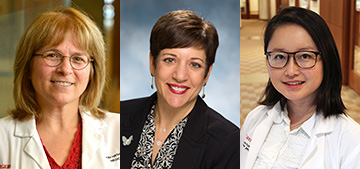
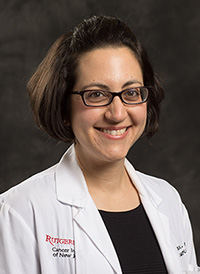














Subscribe to the Big Ten CRC Newsletter X
X Facebook
Facebook YouTube
YouTube